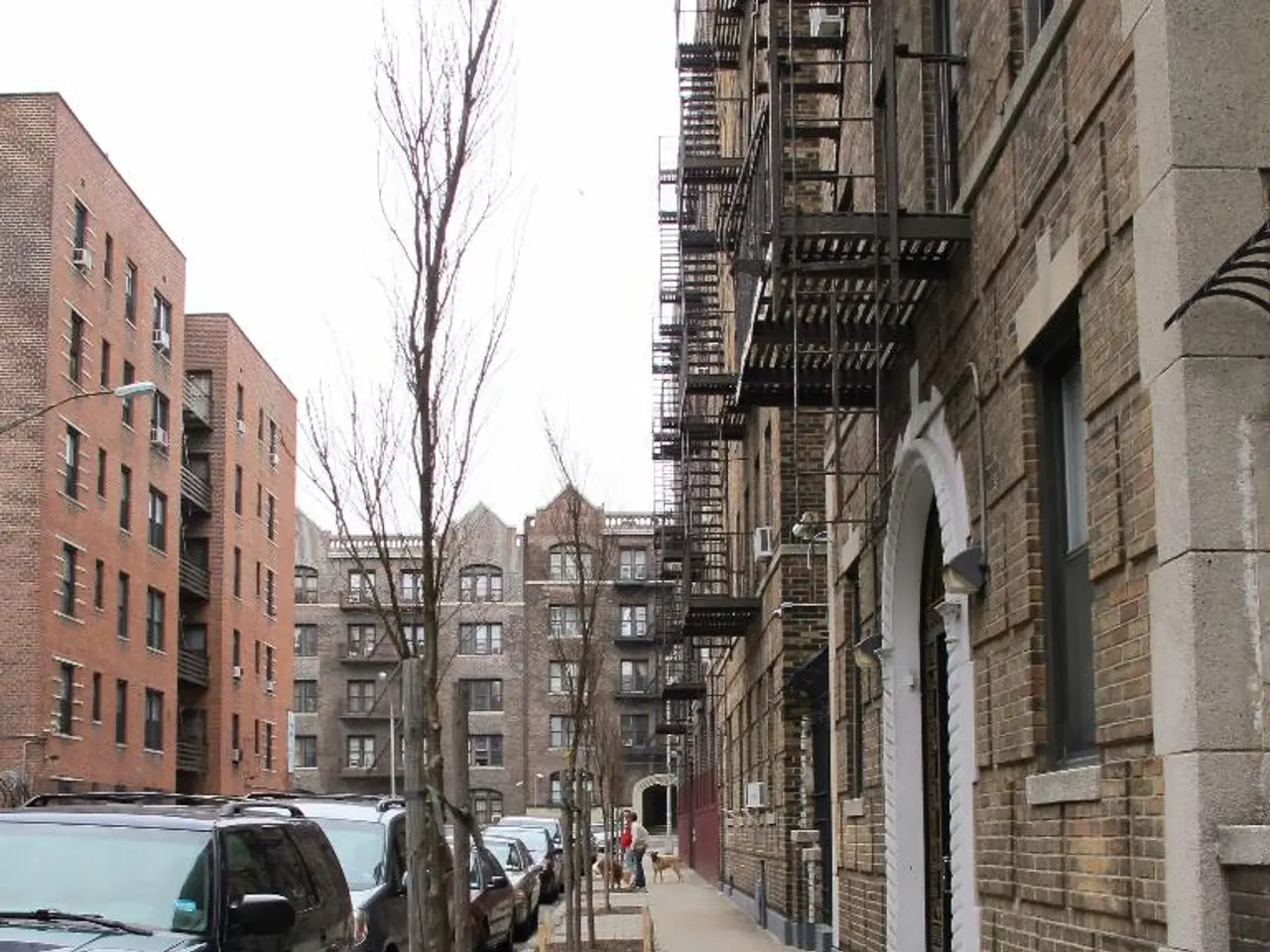The Commission has been active in the planning stage of the program.
In an effort to cater to the diverse needs of tenants while promoting social balance, Berlin's urban development companies are set to introduce a new apartment exchange program in September 2025. The participating companies, including HOWOGE, DEGEWO, and WBM, aim to provide more flexibility and security for Berlin households, particularly for growing families and the elderly.
The program, a supplement to the existing apartment exchange program in Berlin, allows tenants to search for exchange partners independently, regardless of apartment size or company. This means that tenants can find apartments that better suit their living situations, whether they are downsizing or looking for more space.
The new apartments offered through the program will be at the local comparative rent, ensuring affordability for all. The initiative also aims to make more efficient use of the housing stock in Berlin, addressing the continued high demand for larger apartments in the city.
Jörg Franzen, CEO of GESOBAU AG, emphasizes the social benefit of the program, as it facilitates access to urgently needed living space for others. Households with low income can have up to two net cold rents waived as a one-time measure, making the program accessible to a wider range of tenants.
The program is designed for primary tenants who wish to reduce their apartment size by at least one room and 10 square meters. No new tenant surcharge will be applied to the new apartment, ensuring a smooth transition for those moving.
The vacated larger apartments from the program will be allocated to households that urgently need more space in Berlin. This move is expected to ease the housing market in Berlin, supporting tenants in moving to smaller, better-suited apartments.
The new program complements the existing apartment exchange portal of the municipal housing companies in Berlin. It is part of a larger initiative that includes record investments in 2025 for new construction, modernization, and social infrastructure.
By facilitating the exchange of apartments and promoting the efficient use of the housing stock, the program demonstrates the municipal housing companies' responsibility for providing secure and affordable homes. It is an example of how housing companies respond to the diverse needs of tenants while also contributing to social balance.
Read also:
- Nightly sweat episodes linked to GERD: Crucial insights explained
- Antitussives: List of Examples, Functions, Adverse Reactions, and Additional Details
- Asthma Diagnosis: Exploring FeNO Tests and Related Treatments
- Unfortunate Financial Disarray for a Family from California After an Expensive Emergency Room Visit with Their Burned Infant








